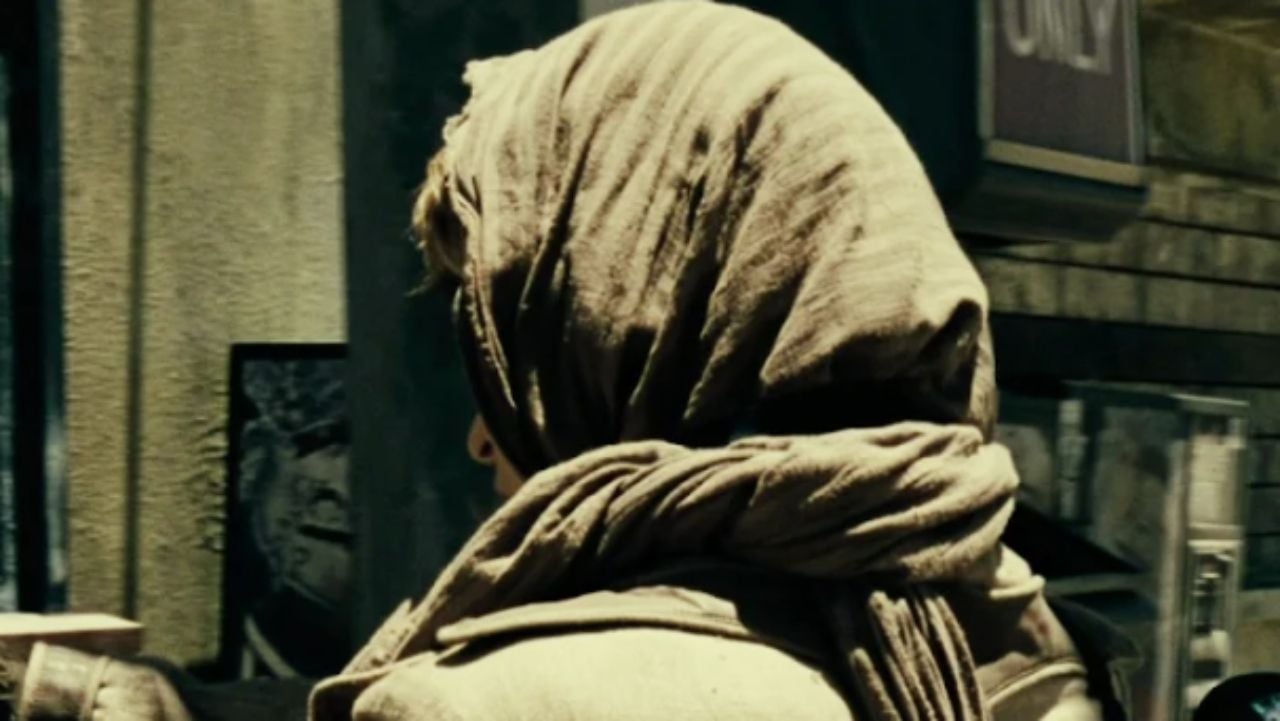What is the answer to the great mystery of the film? And what does that mysterious and shocking final scene mean?
The end of ‘El prodigio’, the new film by Sebastián Lelio starring Florence Pugh, solves the great mystery that brought the protagonist of the story upside down. But, are there more meanings than scratching? What happens in that surprising denouement? And what does that mysterious final scene mean? A member of the Official Section of the San Sebastian Film Festival, the film is now available among the Netflix films from November 16.
Based on the book ‘The Wonder’, its original title in English, the film follows the actress from ‘Little Women’ and ‘Black Widow’ in the role of an English nurse named Lib who is tasked with watching a girl named Anna, who hasn’t eaten for months. Several people in that small Irish town believe that she is surviving on manna from heaven, which is what Anna also believes. In the plot, a local doctor hypothesizes that she is surviving with light, but Lib has other suspicions and as she tries to unravel what happens to Anna (played by Kíla Lord Cassidy), especially when her life begins to in danger.
Next there is SPOILERS of the movie.

Lelio recreates an elegant and canonical staging. He cooks his story very slowly, which makes the ending more disturbing and its plot seem more complex than it is.
It all begins with the voiceover of the actress Niamh Algar, who will play another character later, on the set of ‘The Prodigy’, who introduces the story and who the characters “believe their stories with complete devotion”, a kind of foreshadowing of the film itself. The camera pans forward until it somehow ’emerges’ into the scene and we are in this period story.
As Lib gets to know Anna, Irish journalist William (Tom Burke) comes to stay at the inn and strikes up a friendship with Lib, still hoping that Lib will take him to see Anna. Lib refuses and also begins isolating Anna from anyone other than her and the nun with whom he shares observational duties. In a moment of desperation, Lib begins to force a feeding tube down Anna’s throat, but at the last moment she gives in.. He begs Anna to eat, but the girl keeps refusing.

Little by little Lib is placing more trust in Anna, and he soon realizes how he’s been surviving: his mother has been passing him chewed food during her goodnight and goodmorning kisses, as if he were a bird with its young.. Anna’s mother does not admit it.
Later, Anna reveals the dark secret she’s been hiding: her brother, whose death weighs so heavily on her conscience, abused her for years and believes that she is the only one who can save his soul. Lib summons the group of clerics who oversee the observation, and reveals the truth. However, Anna’s parents admit nothing, accepting the death of her daughter and clinging to her religious beliefs. The clergy agree with them and insist that the experiment continue, as do her parents. Lib even urges her mother to continue “feeding” her as she had been doing, but her mother opts for the divine future.
The ending of Netflix’s ‘The Prodigy’, explained
It should be noted that Lib had a baby that lived for three weeks and her husband left her shortly after. She confesses it to Will but he doesn’t judge her; nevertheless she is in constant grief due to the loss of her son, and his proximity to Anna rekindles her maternal instincts..
So you make a plan on your own. Rather, prepare “another story” for Anna: cHe convinces the girl that she is going to die and be reborn as Nan, a name that the little girl herself has chosen. As soon as Anna agrees, Lib runs off with her (she has given her opioid milk) and performs a ritual where she loses consciousness for a few seconds as Anna and regains consciousness of her as Nan.

Lib then goes to the O’Donnell house to burn everything down. She essentially destroys her memories of the past, as well as Anna’s. Fire is generally considered a symbol of illumination, purification, destruction, and pain. Specifically in Christianity, fire has been pointed to as the tool for punishment for one’s sins, as well as the mark of God’s presence.. So, relying on the use of the popular interpretation of fire to hide the fact that he has taken her to safety with the help of Will.
As the O’Donnells and the rest of the town mourn Anna’s death, we see the girl in London living with Lib and Will as their adopted daughter, already being Nan. Do you have any memories of this traumatic event? You may remember it as a nightmare. Now he has a future in Australia. On the boat, the little girl looks apprehensively at her food and then begins to taste it.
The last scene of ‘The Prodigy’, explained
What about fourth wall breaks? During the beginning of the film, we see a shooting set of the film itself. The narrator frames it as a story we must believe in, just as the characters in the film believe their stories. At around 25 minutes, the narrator is revealed to be Kitty O’Donnell, and she reminds us that we are nothing without stories. “You also need stories, write them in that book that you carry with youhe tells Pugh’s character.
At the end, while registering her name, ya Nan looks directly into the camera, thus breaking the fourth wall. Are you implying that she knows we’re watching her story unfold? Can. Already in the final scene while everyone is eating, the camera pans away from the set and returns to Kitty standing there (in current clothes) and uttering the phrase “in, out, in, out.”
The themes throughout the plot are about belief: the belief in our own stories, the belief in others and the belief in a higher power, inviting us as a public to believe in it too. That’s what ‘El prodigio’ talks about, about beliefs. Also from other backgrounds that are still valid today as in 1862: he talks about religious fanaticism, oppression and manipulation.
Lelio, and the script that he has written together with Alice Birch, wanted to explain the very basic maxim that stories change point of view depending on who tells them. It also does not matter the century in which the plot occurs, or the story in which it is portrayed: patriarchy and its opinions are always toxic.
Source: Fotogramas
Camila Luna is a writer at Gossipify, where she covers the latest movies and television series. With a passion for all things entertainment, Camila brings her unique perspective to her writing and offers readers an inside look at the industry. Camila is a graduate from the University of California, Los Angeles (UCLA) with a degree in English and is also a avid movie watcher.




![Un Si Grand Soleil preview: Thursday 16 October 2025 episode recap [SPOILERS] Un Si Grand Soleil preview: Thursday 16 October 2025 episode recap [SPOILERS]](https://fr.web.img6.acsta.net/img/23/e8/23e803cee5b560481303033f6e86fd7e.jpg)

